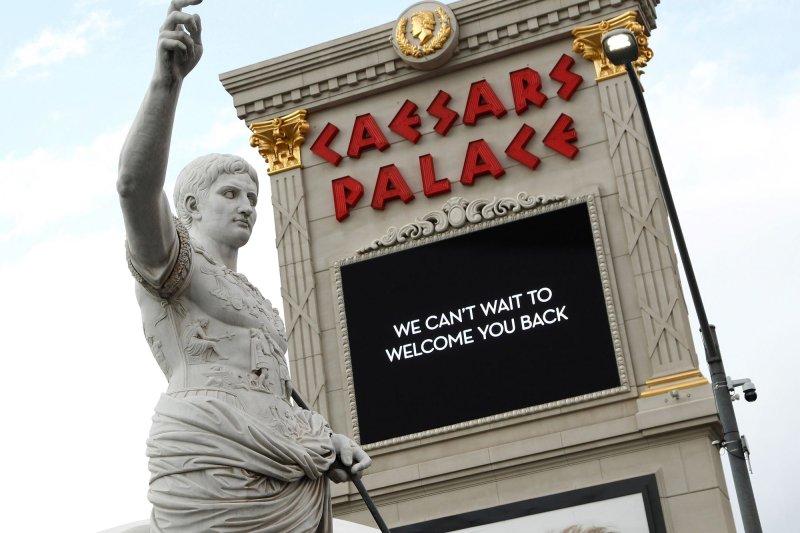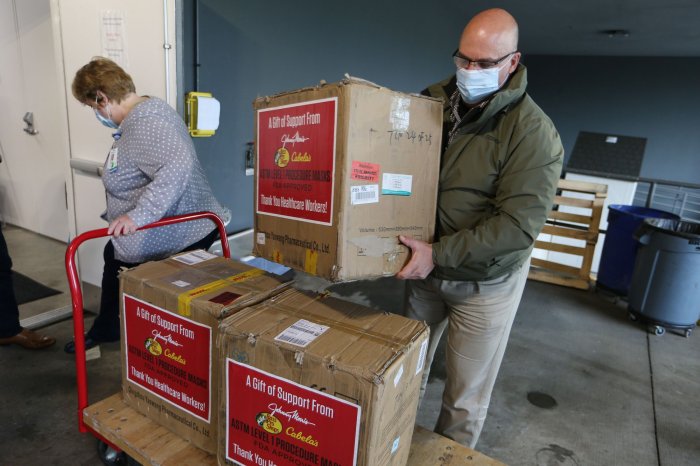The marquee at Caesars Palace Hotel & Casino in Las Vegas, Nev., is seen on March 26 on the south end of Las Vegas Boulevard. The coronavirus emergency has stopped virtually all traffic in one of the busiest cities in the United States. Photo by James Atoa/UPI |
License Photo
April 3 (UPI) -- Americans are going to transit stations, retail and recreation locations and workplaces much less frequently now than they were just a month ago, according to a new mobility project from Google that traces human movements worldwide.
The U.S. tech giant said it's creating Community Mobility Reports for nations around the world that detail people's daily movements based on data gathered from its Maps platform and other mobile services.
Google said the data are collected in a way that protects individual privacy and gives healthcare officials a view on how the coronavirus pandemic has changed people's movements, routines and habits worldwide.
"We use aggregated, anonymized data showing how busy certain types of places are -- helping identify when a local business tends to be the most crowded," Google said in a blog post Friday.
"We have heard from public health officials that this same type of aggregated, anonymized data could be helpful as they make critical decisions to combat COVID-19."
The reports focus on changes in traffic patterns since mid-February, when the coronavirus emergency really began to take hold.
"We'll show trends over several weeks, with the most recent information representing 48-to-72 hours prior," it said. "While we display a percentage point increase or decrease in visits, we do not share the absolute number of visits. To protect people's privacy, no personally identifiable information, like an individual's location, contacts or movement, is made available at any point."
Google said the data for the United States show that Americans have cut visits to retail and recreational locations by nearly half, and transit stations by 51 percent. They have been going to workplaces 38 percent less and are staying home 16 percent more.
"We will release these reports globally, initially covering 131 countries and regions," the company added. "Given the urgent need for this information, where possible we will also provide insights at the regional level.
"In the coming weeks, we will work to add additional countries and regions to ensure these reports remain helpful to public health officials across the globe looking to protect people from the spread of COVID-19."
Google said the reports will be available for a limited time, so long as "public health officials find them useful in their work to stop the spread" of the coronavirus disease.
Bass Pro Shops marketing manager David Smith (R) carries a box of donated face masks into Mercy Health in Chesterfield, Mo., on May 13. The company is donating 1 million FDA-approved ASTM Level 1 Procedure Face Masks to healthcare workers and first responders working on the front lines of the pandemic. Photo by Bill Greenblatt/UPI |
License Photo
















